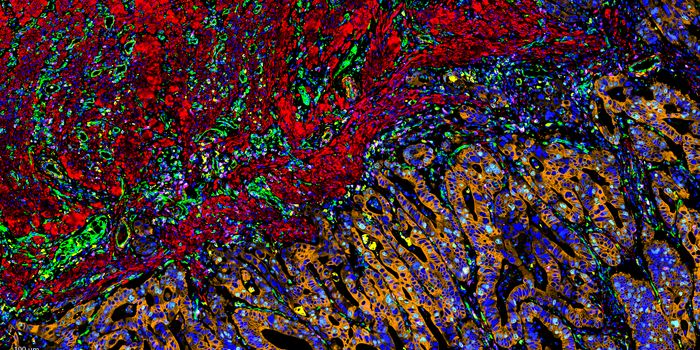For years, the standard of care for people whose lung cancer has spread to the brain was to administer brain radiotherapy to “zap” out the cancer. However, a recent study reports that this method may be
outdated and actually hold little benefit in terms of survival. In fact, the authors of the study conclude that whatever little benefits of the treatment is outweighed by the toxic side effects of brain radiotherapy.

In 2016, the American Cancer Society estimates nearly 225,000 people will be diagnosed with lung cancer. The disease kills more men and women than colon, breast, and prostate cancer combined. Among the reasons why lung cancer is so deadly is its ability to spread to distant organs, including the brain.
Treatment for lung cancer metastasis to the brain usually involves whole brain radiotherapy – a procedure where the brain is essentially zapped with high-energy X-ray waves in the hopes that it will shrink the tumors. "Whole brain radiotherapy was widely adopted into clinical practice based on the assumption it improves tumour control in patients with brain metastases,” said Paula Mulvenna, first author of the study.
In fact, when Mulvenna examined the results of a trial of more than 500 patients, she did not find any conclusive evidence that brain radiotherapy improved patient outcome. Patients who received whole brain radiotherapy were no better off than those who received supportive care and dexamethasone (a steroid). The average survival was 64.4 days for the whole brain radiotherapy group, as compared to 59.5 days best supportive care alone group. Furthermore, both groups experienced similar quality of life, suggesting that the radiotherapy doesn’t appear to have any real benefits.
“In our lung cancer clinics, we were not seeing the improvements we had hoped for in our patients. Survival times are poor and have hardly changed since the 1980s. What's more, the technique's toxicity can be substantial and it can damage cognitive function," said Mulvenna. The toxic side effects of brain radiotherapy are not to be underestimated. Common symptoms include fatigue, nausea, and neurotoxicity that could make the patients feel very sick.
"Whole brain radiotherapy cannot be considered as the standard treatment for all patients with brain metastases because it does not extend survival, improve quality of life, or reduce steroid use. Overtime, there's been a shift away from using whole brain radiation in favor of radiosurgery, which has minimal side effects. Our results could further restrict its use. In the future, potential new treatments (whether using drugs or stereotactic radiotherapy techniques) should be assessed in addition to best supportive care rather than in addition to, or in place of, whole brain radiotherapy,” said Ruth Langley, the study’s senior investigator.
Additional source: The Lancet via
EurekAlert!
 In 2016, the American Cancer Society estimates nearly 225,000 people will be diagnosed with lung cancer. The disease kills more men and women than colon, breast, and prostate cancer combined. Among the reasons why lung cancer is so deadly is its ability to spread to distant organs, including the brain.
In 2016, the American Cancer Society estimates nearly 225,000 people will be diagnosed with lung cancer. The disease kills more men and women than colon, breast, and prostate cancer combined. Among the reasons why lung cancer is so deadly is its ability to spread to distant organs, including the brain.








